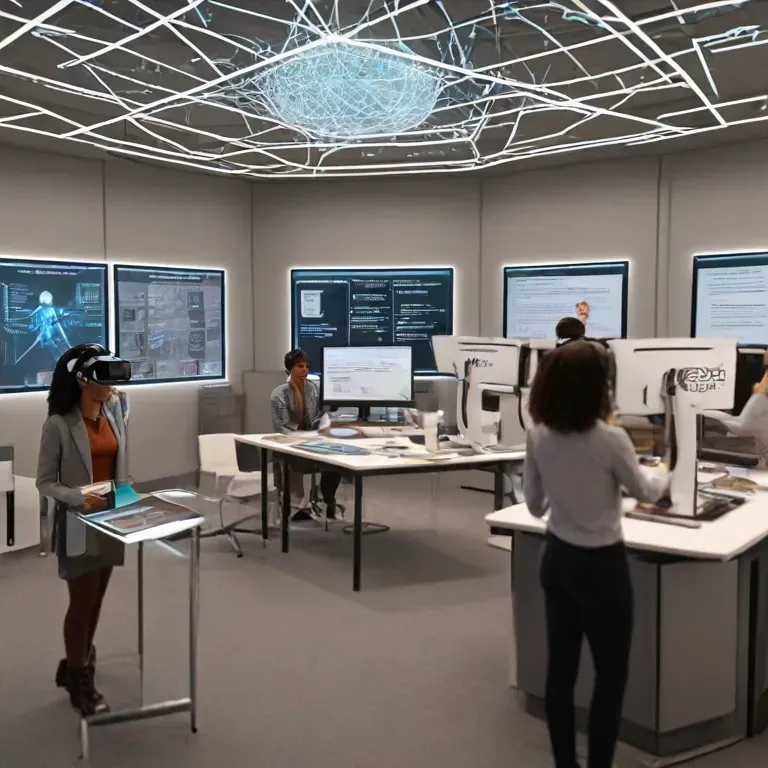The Future of Community College & University Career Services

By Mitch Baiada
Imagine stepping into a community college or university career service center of the future. Gone are the days of static job boards and generic resume workshops. Instead, you’re greeted by a high-tech environment that seamlessly blends education, skills assessment, and job placement.
The heart of this futuristic space is an AI-powered system that analyzes students’ granular skills, knowledge, and behaviors gained throughout their university experience. Large, interactive displays showcase intricate skill webs, connecting course syllabi directly to real-time job postings. Students wearing VR headsets engage in virtual job scenarios, honing their skills in simulated work environments.
Students, faculty, staff, and job placement specialists collaborate around smart tables, their fingers dancing across touch-sensitive surfaces as they review labor market data and student outcomes. A massive world map dominates one wall, pulsing with hotspots that indicate global job demands and emerging industries.
This isn’t just about finding a job – it’s about optimizing the entire educational journey. The AI system tracks each student’s progress, providing personalized recommendations for courses, internships, and extracurricular activities that align with their career goals and the evolving job market.
The future of career services in community colleges and universities is envisioned as a vibrant, data-centric ecosystem where education and employment are closely intertwined. By harnessing the power of AI to align students with job opportunities that suit their distinctive skills, a wide range of institutions can guarantee enhanced alignment of their programs with the needs of employers, leading to improved results for their graduates. Concurrently, the program and institution uphold their accreditation and openly share the outcomes of their student achievements with stakeholders and the general public.
As we move towards this skills-centered approach to education and job placement, the lines between classroom and workplace will continue to blur, creating a more seamless transition for students entering the workforce of tomorrow.
